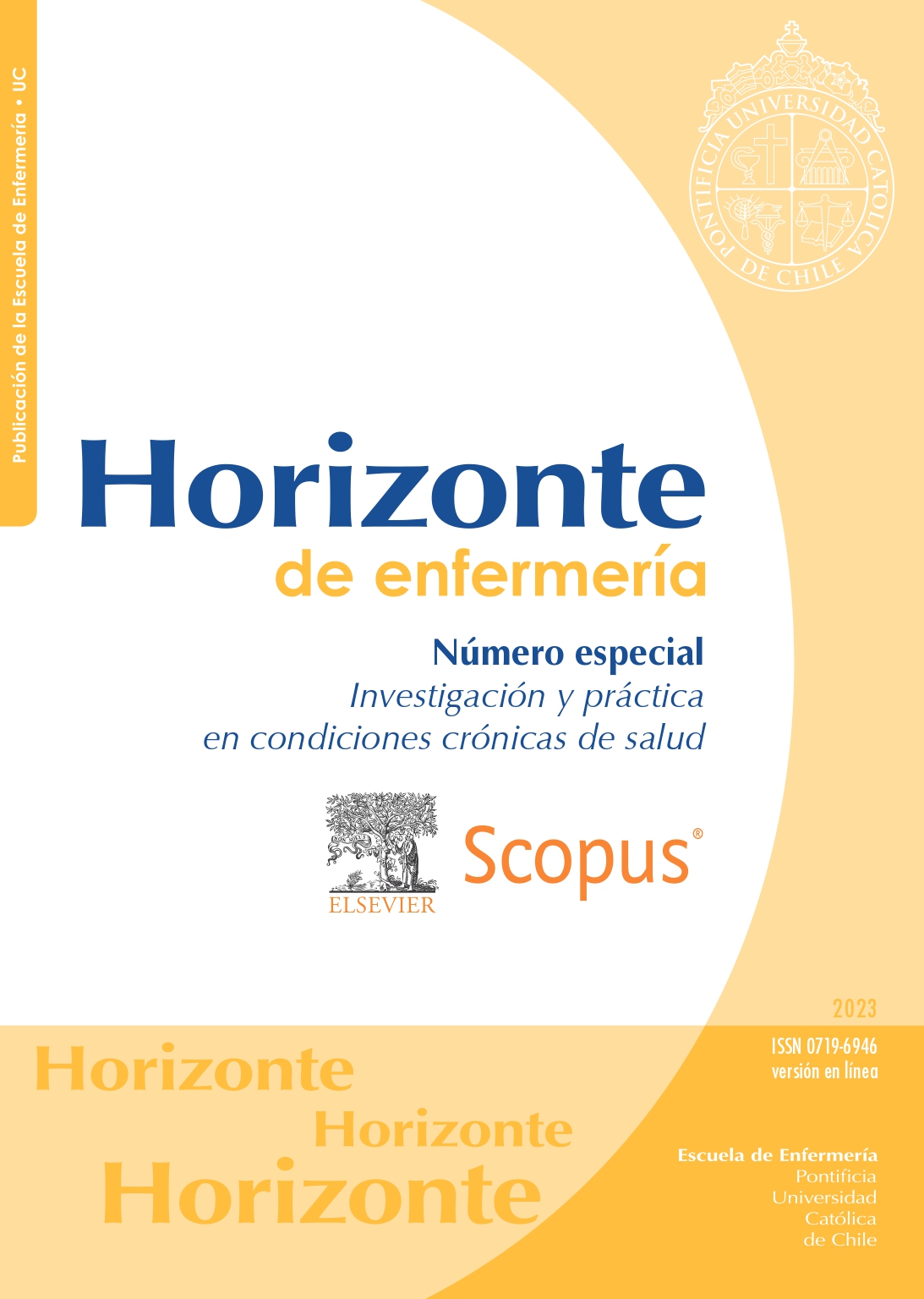SELF-EFFICACY OF INFORMAL CAREGIVERS OF PEOPLE IN PALLIATIVE HOME CARE: A NARRATIVE REVIEW.
Main Article Content
Abstract
Informal caregivers present high levels of stress and overload in the face of end-of-life care. However, some have managed to cope with this situation through their self-efficacy. OBJECTIVE: This study had the objective of identifying the factors that influence the development of self-efficacy in informal caregivers of people in palliative care and identify the effects of self-efficacy on these caregivers. METHOD: A narrative review of scientific literature was carried out in the databases Web of Science, PubMed, CUIDEN, and CINAHL based on the PRISMA flowchart, between September and October 2022, using the descriptors self-efficacy, caregivers, and palliative care. The findings of the articles were subjected to a thematic analysis by both authors. RESULTS: 15 scientific articles were selected, identifying three categories: Factors that decrease the development of informal caregivers' self-efficacy (feelings of stress, distress and anxiety, and caregiver overload); Factors that favour the development of informal caregivers' self-efficacy (hope, social support, and caregiver empowerment); and the Effects of self-efficacy on informal caregivers (confidence in the care given, quality of life of the care recipient, decreased stress and decreased caregiver overload). CONCLUSIONS: It was concluded that the informal caregiver must meet important challenges promptly and appropriately when providing care. Therefore, the self-efficacy developed from hope, social support, and training enables them to improve the quality of life and well-being of both them and the cared-for person.
Downloads
Article Details

This work is licensed under a Creative Commons Attribution-NonCommercial-NoDerivatives 4.0 International License.
